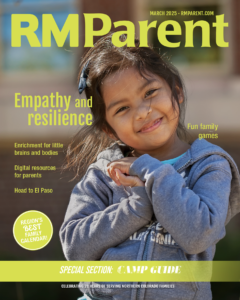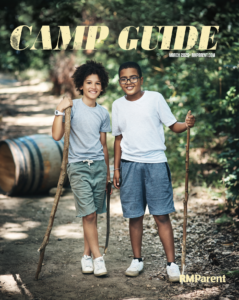Is it RSV or Covid-19?
Young babies can’t talk. They can’t explain their symptoms or tell us just how sick they are. Even toddlers are hard to pin down. Of course they can cry, but that’s not always helpful. Be prepared this winter by understanding what to watch for with RSV and COVID-19, and how to tell them apart. Since many symptoms cross over with each, it helps to know each illnesses’ telltale sign. Best yet, read tips on what to do when your baby gets sick to help him or her feel better.
Recognizing RSV
The dreaded words, ‘Your child has RSV’ can make first time moms cry. RSV, or respiratory syncytial virus, has a bad reputation. It often strikes babies and toddlers the worst and can cause them to have trouble breathing and possible serious consequences. But don’t fret. Most little ones come through the illness just fine, especially if you know what to watch for, and you seek care quickly when its needed.
The good news is that about 80 percent of kids get through a bout of RSV with mild cold symptoms. Fifteen percent may have trouble breathing, a bad cough and wheezing, but are better within a week. Less than five percent, usually those with a history of medical problems, end up in the hospital for help with breathing.
The younger the child, the worse the illness, so newborns and infants are most vulnerable to extreme symptoms. Like clockwork, RSV comes to almost every community, every winter, and is highly contagious. It’s another reason, besides the obvious Covid-19, to keep your newborn or infant out of indoor public places this winter. By age 2, the risk for complications from RSV usually ends.
Symptoms of RSV
RSV should be called the lung gunker. It creates large amounts of mucus that stuff up the nose then move to the lower airway and lungs. Kids with a bad case of RSV can sound like coffee percolators. Their breathing gets fast and raspy. They may seem tired, have a sore throat, cough, and wheeze. The virus can cause pneumonia and bronchiolitis in extreme cases.
Symptoms often start with a runny nose. The full-on illness produces nasal congestion, fever, wheezing, wet cough, difficulty feeding or difficulty breathing. If your baby seems to be struggling to breathe, call your doctor as RSV can sometimes get serious quickly (see side box).
Recognizing COVID-19
The good news is that children tend to have milder cases of COVID-19 than adults. This is even true for babies. According to the U.S. Centers for Disease Control and Prevention (CDC), most newborns with COVID-19 have mild symptoms or none at all. However, there have been some serious cases in babies. If your child is showing signs of COVID-19 and symptoms are worsening, call your doctor and have him or her tested for Covid-19. Drive-through testing sites are free of charge. Even babies can have a rapid Covid-19 test, which produces an accurate negative test about 75+ percent of the time, and an accurate positive test about 90+ percent of the time.
Symptoms of COVID-19
If your baby has been exposed to COVID-19, they could develop symptoms between 2-14 days. The most common symptom of COVID-19 is a cough. Children can also experience fever, chills, body aches, difficulty breathing, sore throat, diarrhea, nausea, vomiting, headache, fatigue, and congestion or runny nose.
Which is which? Telltale signs
It can be hard to figure out which illness is making your baby or toddler sick, but there are a few clues. For example, with RSV kids tend to have a wet cough, where with COVID-19, they tend to have a dry cough. Doctors have also reported seeing more wheezing with RSV.
Helping your child through a viral infection
Generally, there is no treatment for viral infections, other than getting through it and giving medicines and care to make your child comfortable. However, if you have a high-risk infant, one with health problems, there is a preventive medicine that produces antibodies to RSV. And in some cases of COVID-19, a doctor might choose to prescribe monoclonal antibodies for your child.
Dr. Shannon Evans, DO, Functional Medicine Physician with New Beginnings Functional Medicine Clinic in Fort Collins recommends making a child comfortable with a cold, moist cloth on the forehead or back of the neck. Also, keep them cool with light clothing and avoid heavy blankets or cranking up the house heat. If you have a baby younger than six months with a fever of 100.4 degrees or more, see your physician, and also for kids with a fever of 104 degrees or higher. If your child is super lethargic or fussy, has a stiff neck or a very sore ear or throat, see your doctor.
Help your child by regularly suctioning out their nasal cavities to alleviate stuffiness, and help them breathe. Also, give them plenty of fluids. It takes a surprising amount of liquid to make mucus. To help your child’s cough become productive—getting phlegm up and out of their lungs—run a humidifier in his or her room at night. Make healthy meals and do your best to promote lots of naps and sleeping through the night.
If your baby is six months or older, consider giving her or him alcohol free elderberry syrup at the first signs of a viral infection. Continue until symptoms resolve. Babies over a year can also have a teaspoon of honey to help alleviate coughs.
“Black elderberry extract has been shown to do a better job at lessening flu symptoms and shortening the duration of the illness than Tamiflu,” says Dr. Evans.
At the end of the school day, your older kids bring home more than homework. Along with books and papers, they carry the latest viruses or bacteria that are circulating around the classroom. To help prevent illness in a new baby, have siblings practice good handwashing habits immediately when they come home, and give them hand sanitizer to use throughout the day at school. And remember, children under the age of 2 should never wear masks.
“Of course, prevention is the key. Eating healthy, staying well hydrated, limiting sugar intake, moving daily, limiting stress and avoiding second -hand smoke are the basics for keeping children healthy,” Dr. Evans concludes.
When to call the doctor
If your child has the following symptoms with any viral-caused illness, call your doctor:
- Signs that they are working too hard to breathe include wheezing, a tight, whistling sound, seeing their nostrils flair, retracting of the skin between their ribs or seeing their belly suck in, blue lips, and grunting while breathing out
- Floppiness, lethargy, or not interested in activity
- Having been sick for a while without signs of getting better
- High fever, which means above 100.4 for babies under 6 months or 104 for older kids
- Dry diapers, with just 1 wet diaper per 8 hours indicating dehydration

Lynn U Nichols is a longtime Fort Collins-based freelance writer who specializes in health and wellness content. She raised two boys while writing for RM Parent Magazine, gratefully applying the wisdom she gleaned from interviews with child experts along the way. Learn more at healthwritecommunications.com.




